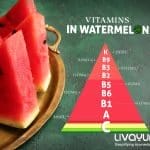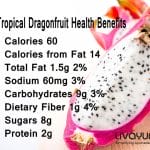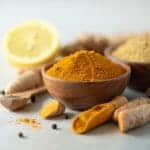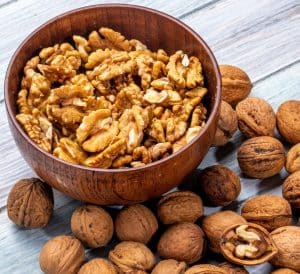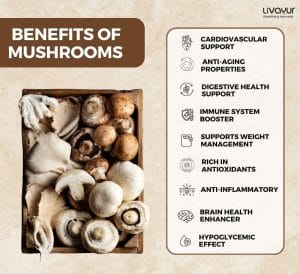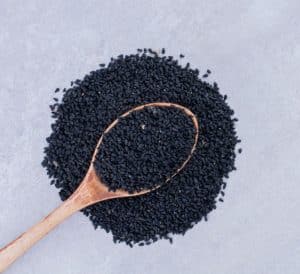This article is reviewed by an expert

Watermelon is a juicy and refreshing fruit many enjoy, especially during the summer. Ayurveda considers watermelon a cooling food that can help balance the body’s Pitta dosha, and studies have shown that it has anti-inflammatory, anti-cancer, and antioxidant properties. [1]
Watermelon is delicious and contains essential nutrients that offer numerous health benefits. We explore the various health benefits of watermelon as described by Ayurveda. We will delve into watermelon benefits, the different nutrients found in watermelon and how they work to support different bodily functions.
Nutritional value of watermelons
Watermelon is a nutrient-dense fruit that is low in calories and high in several essential nutrients. One cup of diced watermelon contains the following nutrients: [2]
| Nutrients | Quantity (per 100 gm) |
|---|---|
| Carbohydrates | 11.48 grams |
| Protein | 0.93 gram |
| Fat | 0.23 grams |
| Fiber | 0.61 gram |
| Vitamin C | 12.31 mg |
| Vitamin A | 864.88 (IU) |
| Potassium | 170.24 mg |
| Magnesium | 15.2 mg |
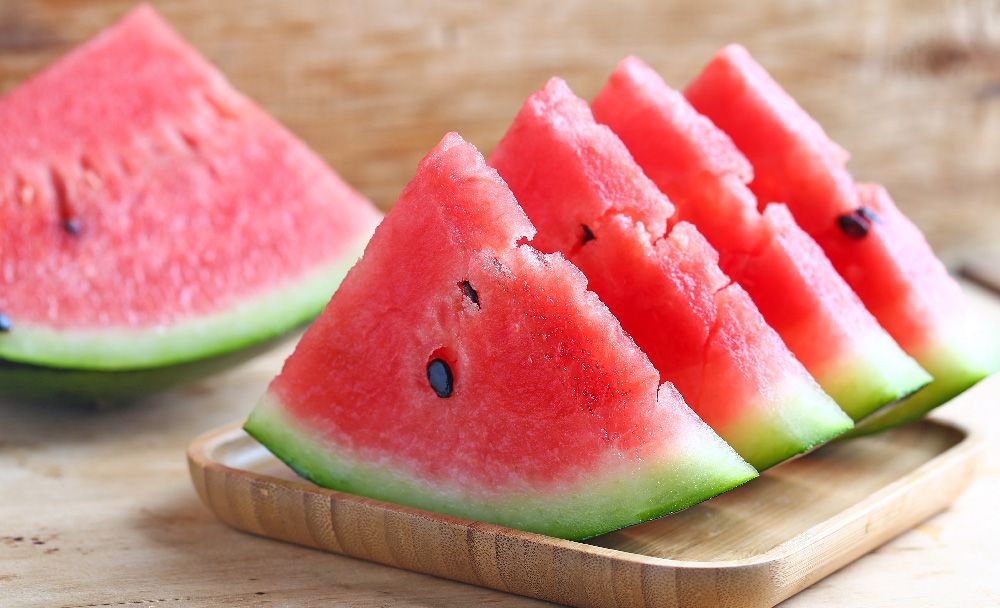
15 Incredible Benefits of Watermelon
Here are 15 benefits of watermelon you need to know. Ensure to follow a healthy lifestyle to experience these benefits holistically.
1. Hydration
Watermelon eating benefits include its ability to hydrate. It is a juicy fruit rich in water content, making it an excellent source of hydration. [3]
2. Heart health
Watermelon contains lycopene, which has been linked to improved heart health by reducing inflammation and oxidative stress. [4]

3. Digestion
Ayurveda mentions many watermelon benefits. Watermelon is a good source of fiber, which can promote healthy digestion by regulating bowel movements and preventing constipation. [3]
4. Immune system
Watermelon has a high vitamin C content, which is essential for immune function. Consuming watermelon can help boost the immune system and protect against infections. [3]
5. Weight management
One of the many benefits of watermelon is its ability to manage weight. Watermelon is low in calories and high in water and fiber content, making it an ideal food for weight management. [3]
6. Anti-inflammatory
Watermelon contains anti-inflammatory compounds, which can help reduce inflammation in the body and prevent chronic diseases. [3]
7. Skin health
Watermelon benefits extend to managing skin health. The high water content and vitamin C in watermelon can promote healthy skin by hydrating and protecting it from sun damage. [3]

8. Eye health
Watermelon contains beta-carotene, which is converted to vitamin A in the body and is essential for healthy eyesight. [5]
9. Muscle soreness
Watermelon nutrition can provide overall health benefits. Consuming watermelon juice after intense exercise can help reduce muscle soreness and aid in recovery due to its high content of amino acids. [6]
10. Kidney health
Watermelon eating benefits include improvement in kidney health. Watermelon is a natural diuretic, which can promote healthy kidney function by increasing urine flow and reducing the risk of kidney stones. [11]
11. Blood pressure
Watermelon contains phytosterols, which help control blood pressure by reducing low-density lipoprotein (LDL) or “bad” cholesterol. [12]
12. Bone health
Watermelon is a good calcium source, essential for maintaining healthy bones and preventing osteoporosis. [3]
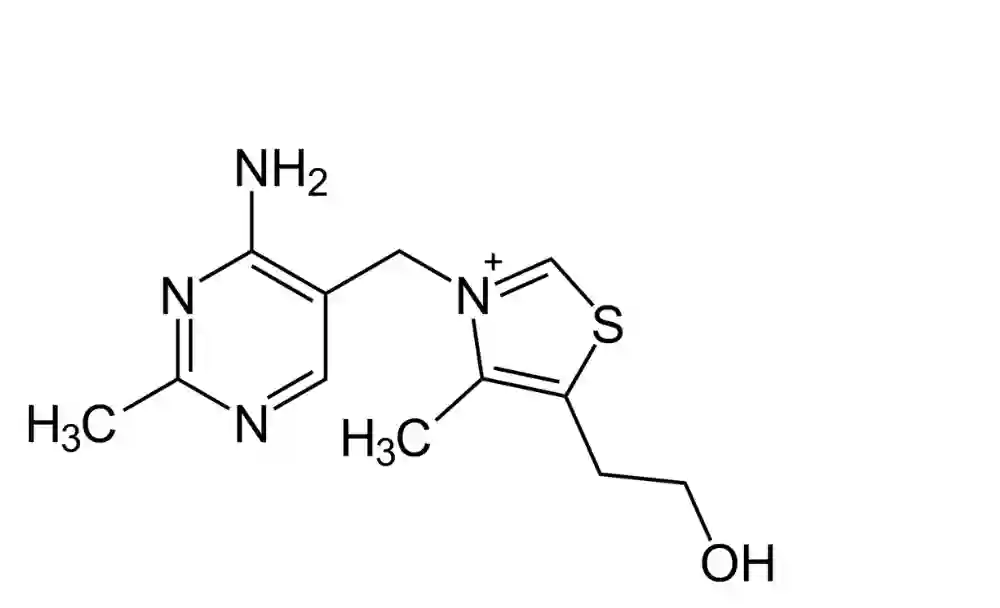
Chemical Structure of Riboflavin
13. Energy production
B vitamins in watermelon, like thiamin, niacin, and riboflavin, help maintain energy production in the body. [3]
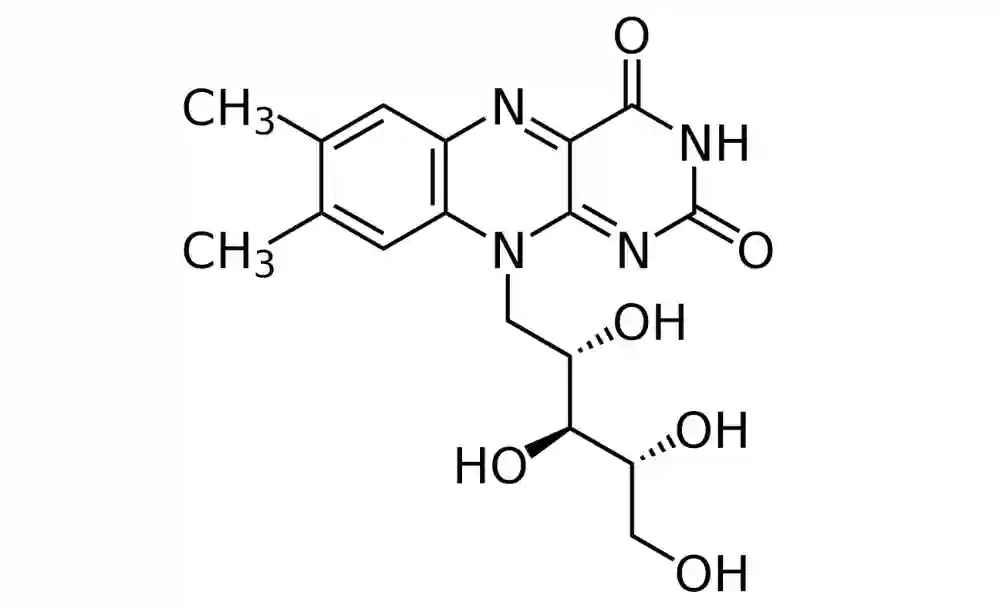
Chemical Structure of Thiamin
14. Blood flow
Watermelon improves peripheral blood flow and reduces blood pressure. [7]
How to Consume Watermelon
Watermelon is a versatile fruit that you can consume in the following ways:
• Sliced
The most common way to experience the benefits of eating a watermelon is to slice it into wedges or cubes.
• Juice
You can harness the watermelon nutrition by consuming it in the form of juice. Cut the watermelon into chunks and blend until smooth. You can add other fruits or herbs to twist the flavor and enjoy watermelon juice benefits.

• Smoothies
Watermelon can be blended with other fruits, such as strawberries or bananas, to create a delicious and nutritious smoothie.
• Sorbet
Watermelon can be blended into a sorbet by combining it with sugar and freezing until it reaches a smooth and creamy consistency.
Side Effects of Watermelon
Although eating watermelon is generally safe, there may be some adverse consequences. Blood sugar levels may rise due to the natural sugars in watermelon, particularly if you have diabetes. Overindulgence may result in diarrhea, constipation, or bloating.
FAQs on Watermelon
1. What are the benefits of watermelon seeds?
Watermelon seeds are a good source of protein and micronutrients like magnesium and zinc, which are essential for a healthy body.
2. Is watermelon good for diabetes?
Watermelon is generally safe for people with diabetes to consume in moderation, as it has a low glycemic index. There won’t be a spike in sugar levels, which can cause a flare in diabetes.
3. Is watermelon good for weight loss?
Watermelon benefits include the ability to manage weight. Watermelon can be a good option for weight loss due to its low-calorie and high water and fiber content.
4. How does watermelon benefit men?
Watermelon may offer several benefits for men, including improved cardiovascular health, enhanced athletic performance, reduced muscle soreness, and improved sexual health.
5. How does watermelon benefit the skin?
Watermelon can provide several benefits for the skin, including hydrating and moisturizing it due to its water content.
Conclusion
Watermelon is a nutrient-dense powerhouse that offers numerous health benefits. Watermelon and watermelon seeds are valuable to any diet, as they promote hydration, reduce inflammation, improve heart health, and aid digestion.
With its high content of antioxidants, vitamins, and minerals, consuming watermelon can help boost the immune system and promote overall health and well-being. There are countless ways to incorporate watermelon into your diet and harness the amazing health benefits of watermelon.
Disclaimer:
The information provided here is only for informational purposes, please consult a trained Ayurvedic practitioner every time before initiating any dietary modification.
References
- Watermelon: A Valuable Horticultural Crop with Nutritional Benefits. February 2018
- Versatile Nutraceutical Potentials of Watermelon—A Modest Fruit Loaded with Pharmaceutically Valuable Phytochemicals. November 2020
- Watermelon nutrition profile, antioxidant activity, and processing. August, 2022
- Watermelon Intake Is Associated with Increased Nutrient Intake and Higher Diet Quality in Adults and Children, NHANES 2003–2018. November 2022







